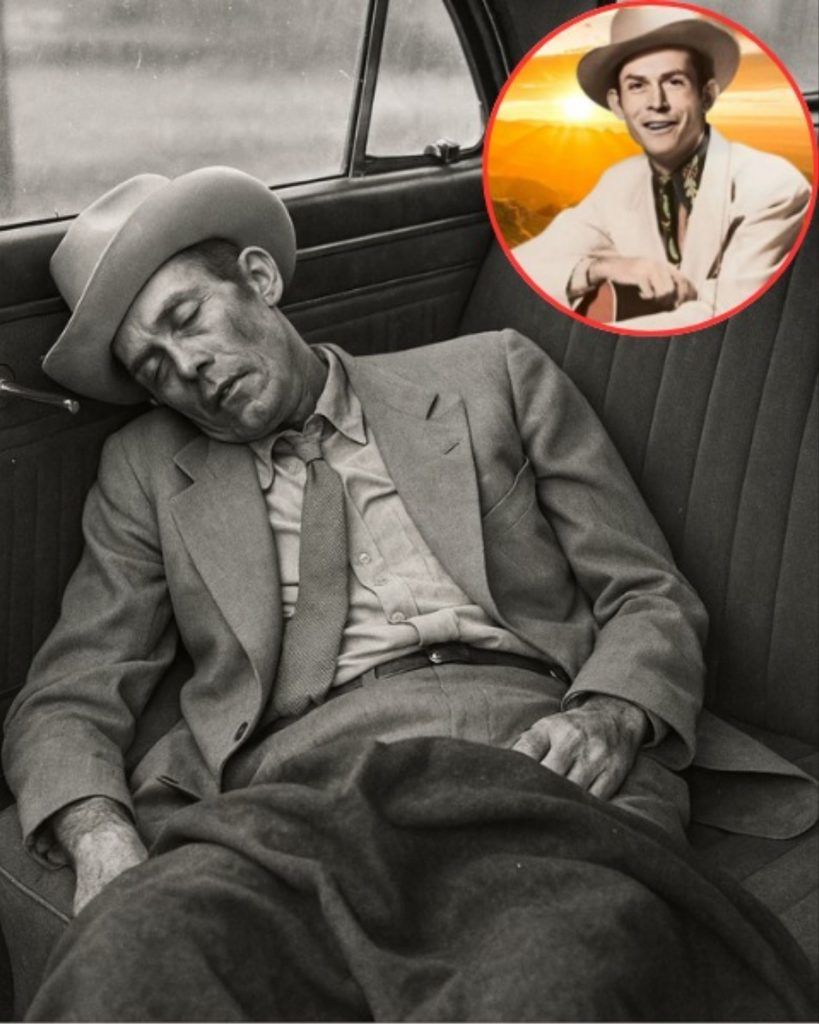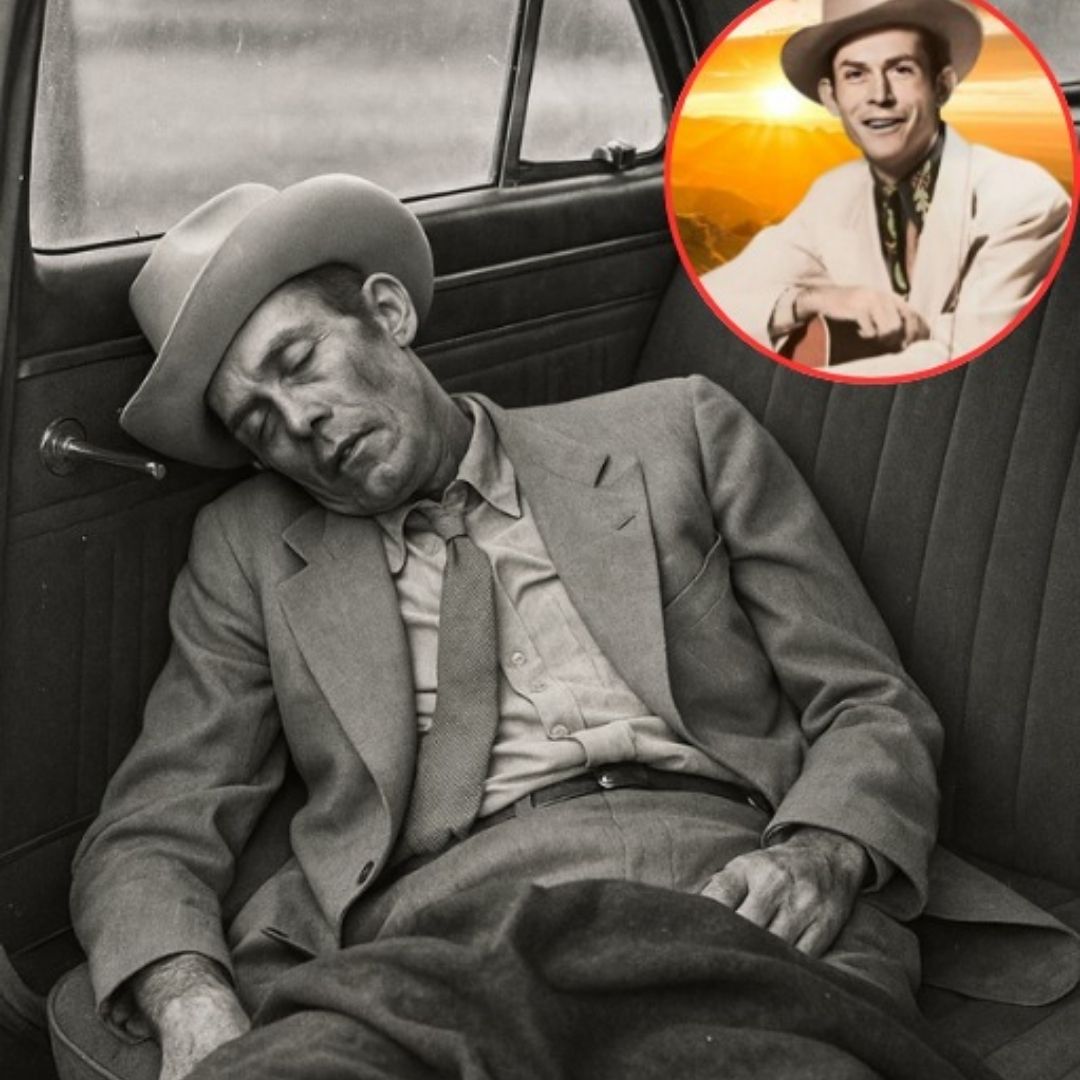
The Death of Hank Williams: The Day Country Music Lost Its Soul
OAK HILL, WV – January 1, 1953. A cold New Year’s morning that would forever mark the saddest chapter in country music history. At just 29 years old, Hank Williams, often called the Hillbilly Shakespeare, was pronounced dead in the back seat of a baby blue Cadillac. The man who had given the world timeless songs of heartbreak, faith, and human struggle was gone — and with him, an entire era of music seemed to collapse.
The details of that fateful day remain etched in memory. Hank had been scheduled to perform in Canton, Ohio, on New Year’s Day, but his health was already fragile. Years of hard living, fueled by alcoholism and a dependency on painkillers, had taken their toll. On December 31, 1952, he set out from Knoxville with a young driver, Charles Carr, to make the long trip through the night. By the time they reached Oak Hill, West Virginia, Hank Williams was no longer alive.
The official cause of death was heart failure, but the truth was far more complicated. Hank had been battling spina bifida occulta since childhood, a painful condition that contributed to his reliance on alcohol and prescription medication. Coupled with the pressures of fame and a relentless touring schedule, the burden proved overwhelming.
The news of his passing spread like wildfire. Fans who had welcomed the new year with joy were left in tears as radio stations across the South began playing his records in tribute. “Your Cheatin’ Heart,” “I Saw the Light,” and “I’m So Lonesome I Could Cry” suddenly carried even more weight — not just songs, but haunting echoes of a voice silenced too soon.
In Montgomery, Alabama, tens of thousands gathered for his funeral, making it one of the largest in state history. Legends like Roy Acuff, Ernest Tubb, and Red Foley stood shoulder to shoulder in grief. One mourner recalled: “It wasn’t just Hank we lost that day. It was part of ourselves.”
For his family, the tragedy was devastating. His young son, Hank Williams Jr., was just three years old, far too young to understand the shadow of greatness and sorrow he would grow up under. Decades later, Hank Jr. would forge his own path in music, but the memory of a father he barely knew remained an ever-present ghost.
In the years since his death, Hank Williams has become more than just a country singer. He is a symbol of authenticity, a reminder that music rooted in truth carries timeless power. His songs continue to influence artists across genres, from country and rock to blues and folk.
Seventy years later, the death of Hank Williams still feels like a wound. He was a poet of pain, a storyteller of ordinary lives, and a star who burned too brightly to last. The Cadillac ride that ended in Oak Hill closed the book on his short life — but opened a legacy that will never die.
Video
